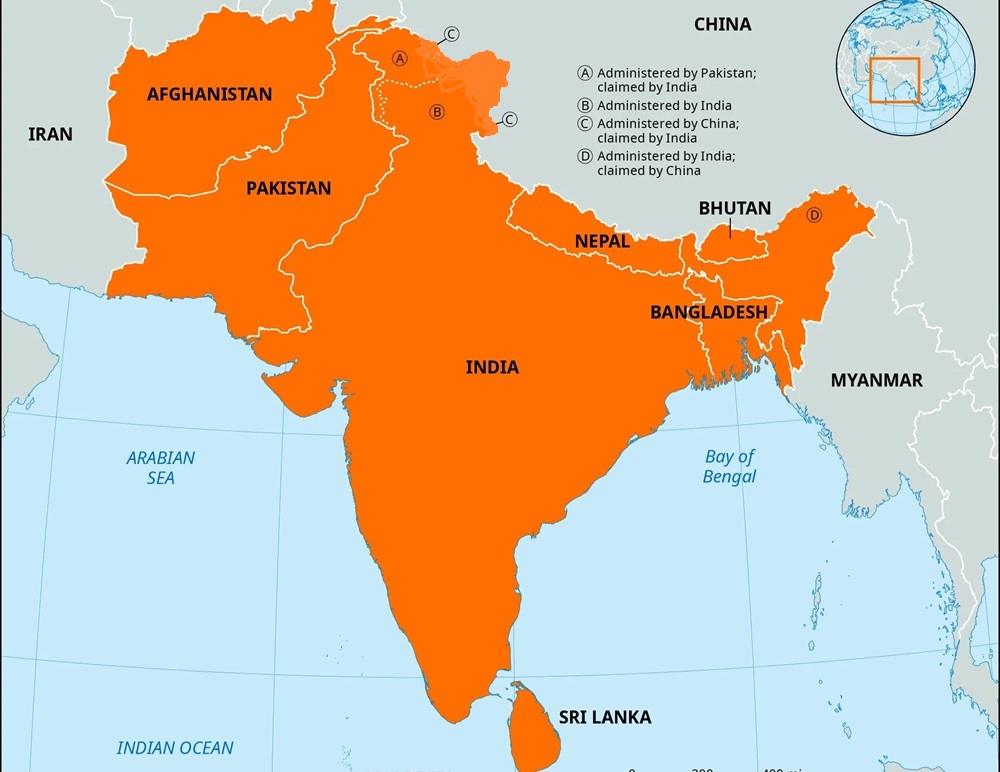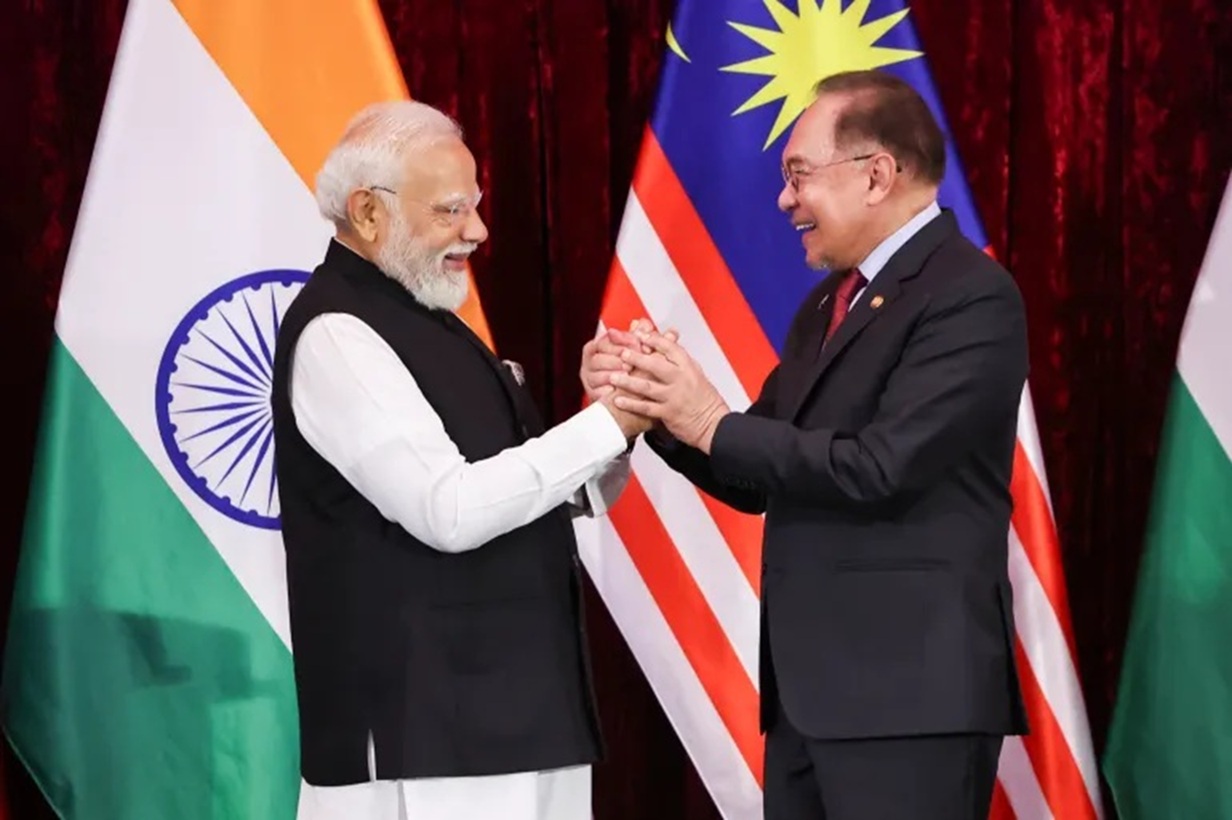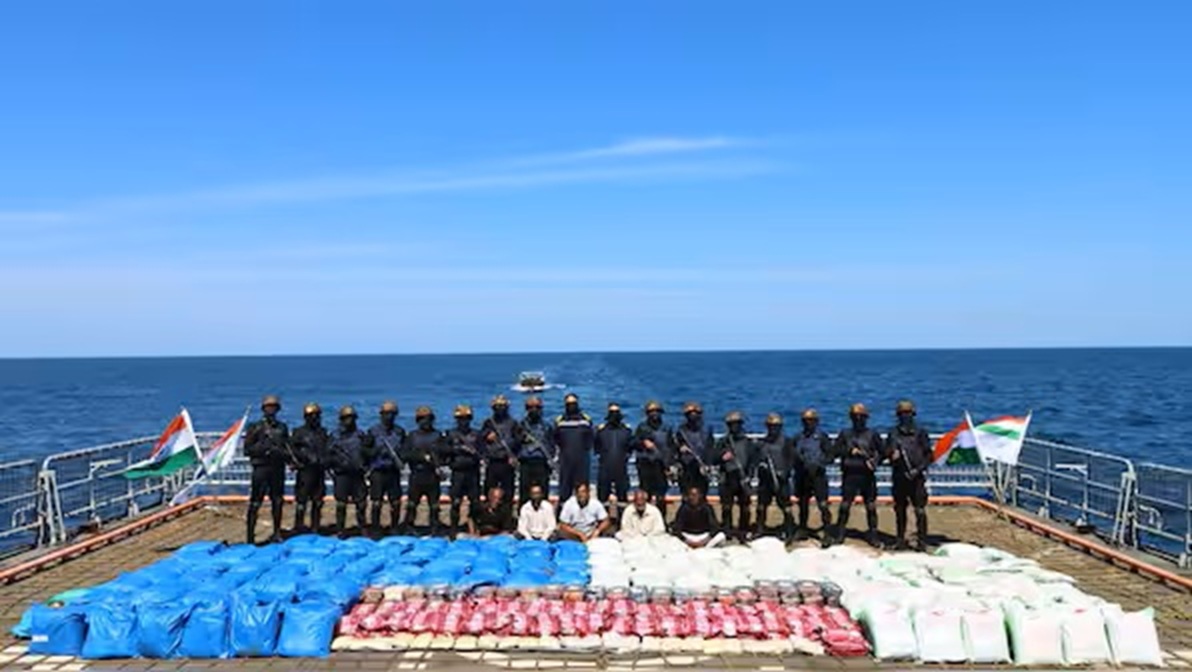Efforts to increase economic, social, and political cooperation among countries in the South Asian region remain hindered by political disputes and a lack of trust among the member nations.
Fractured Legacy of Partition
South Asian Regionalisation process once again under stress due to the Indo-Pak recent conflict after the Phalgam terror attack, particularly on Hindu tourists in April 2025 by a Pakistan-based terrorist outfit, The Resistance Front (TRI), a proxy of ‘Lashkar-e-Taiba’ (LeT). India has launched ‘Operation Sindoor’ immediately after this brutal attack on different terrorist outfit centres in Pakistan, which escalated later into a full-fledged war, creating again the power vacuum for Great power politics in the South Asian region. Though during the Cold-War period, the great power politics already fractured the regional integration process as John Mearsheimer anticipated that the tragedy of great powers politics led to the anarchical order in the South Asian region, wherein great powers involved in deep to shaping the regional security dynamics. In a similar line of thought, Chanakya’s ‘Matsya Nyaya’ theory, wherein ‘big fish always swallow the smaller one’, is appropriate to understand the South Asian contexts wherein great powers such as the US, Russia and China are involved to exploit the recent escalation between India and Pakistan. Notably, the ‘Two Nation Theory’, which was the basis of the partition of the sub-continent, created Pakistan as a sovereign nation as a resilient ally to counter the Soviet Influence in the region. However, after the British inability to secure its great power authority, the US filled the power vacuum, started the proxy-war against the Soviet Union with the support of Al-Qaeda in the region. China is another Great Power in the region, which is deeply involved through strategic proximity through the China-Pakistan Economic Corridor (CPEC) with Pakistan. Therefore, the force of great power politics led to the South Asian region more complex power theatre in world politics.
From the 9/11 Attacks to the Pahalgam Terror Attack: Changing New Power Dynamics
Since the 9/11 attack notably the US directly launched the ‘War against Terror’ Policy in Afghanistan, contested by other great powers such as Russia and China. However, it was partially greeted by New Delhi to counter terrorism operations, an obvious reason that it also faced the 2001 parliament attack and the 26/11 Mumbai attack by Pakistan-based terrorist group Lashkar-e-Taiba and other extremist groups. Further, China’s Belt and Road Initiative (BRI) also jolt New Delhi towards sensible strategic collaboration with the US to stop the Dragon’s footprints in the region. The Pehlgam attack once again increased the faultline debate wherein great powers entered the limelight, such as Donald Trump’s continuous claim for a ceasefire between India and Pakistan, offering mediation in the Kashmir dispute and a drastic shift of Trump-2.o administration towards Pakistan, especially after the ‘Operation Sindoor’. In contrast, India’s stand for buying Russian oil, considered its stand for strategic autonomy, was retaliated by the Trump administration by imposing 50% tariffs on Indian goods at ever all-time high and signed the $500million deal for rare earths with Pakistan. Some reports suggest that India’s attack on Pakistan’s military infrastructure, particularly Nur Khan airbase, wherein the US hold exclusive access, caused the US’s drastic policy shift in South Asia. Pakistan also offers the Pasni port to the US to restrain the Indian influence around the Arabian Sea. On the other hand, New Delhi also gives the sign to restore its relation with China, attempt visible by the Shanghai Cooperation Organisation (SCO). Thus, these new geostrategic and security alignments by Great Powers, particularly after ‘Operation Sindoor’, are going to make a more complex regional security dynamics in South Asia.
Kashmir Issue: A Harvest Ground for Power Politics
Since the partition of the Indian sub-continent, Indo-Pak fought three major traditional wars over the unsolved Kashmir dispute, pushed both countries towards nuclear proliferation, and a missile testing regime which threatens the South Asian regional security framework. Nonetheless, the great powers do not try to find a permanent solution to the Kashmir dispute due to their own geostrategic interests and pressure from weapon-exporting lobbies of these countries, such as the US and USSR (Russia), now replaced by China. It has also taken advantage of Pakistan’s fare from New Delhi, tilted towards the strong vertical geostrategic expansion towards Islamabad, notably through CPEC and BRI projects. Therefore, the great powers’ politics altered South Asia as a theatre of the Great Game, wherein the great powers, instead of solving the regional issues, especially the Kashmir issue, enjoyed the status quo position through selling weapons and other arms technology to both India and Pakistan for decades.
Re-imagine the South Asian Regional Integration
To take the example of historical memo of the victimisation of Germany, Korea and Vietnam, partition of the Indian sub-continent and more recently, the Ukraine crisis, Israel-Palestine conflicts are major consequences of the great power politics. Let’s reimagine or reintegrate the South Asian region as a potential or possibilities to delimit their personal issues through bilateral and multilateral talks and dialogues. The South Asian region is full of a mixture of historical, cultural, religious and geographical different units situated between South East Asia and the Middle East. The region has new possibilities of strong regional integration if the SAARC countries follow the new exceptional trends.
Firstly, the SAARC countries are at the stage of developing nations; they need to reimagine their geographical, historical, cultural, religious and political unity to revive their historical pride from Indus to Vedic and Modern nation-state. Secondly, the region has greater possibilities to increase its commercial and trade connectivity through land and maritime sea connectivity, likewise the European Union, ASEAN institutional frameworks. Thirdly, India-Pakistan must take accountability, notably keep aside the Kashmir Issue for at least upcoming fifty to seventy years, focus on win-win possibilities to solve the minor disputes such as immigration issues, ethnic and cross-border infiltration, sea piracy, human trafficking, Narco-terrorism, etc. Fifth, to delimit the involvement of great powers in the regional issues, solving regional issues with mutual trust and cooperation, bilateral and multilateral talks without involving the great powers could delimit the complexity in the regional cooperation. Lastly, but not least, start with thinking of a human approach to come close to people to people connect, neutralise the barrier of physical boundaries, solve the boundary disputes through win-win sentiments rather than the zero-sum game.
Conclusion
Lastly, impossible but not difficult, if East Germany and West Germany, Vietnam could reject the great powers’ demarcation, then why not the Indian sub-continent, at least on some mutual grounds of cooperation? Though the recent geopolitical and security dynamics since the ‘Operation Sindoor’ once again formed the new power vacuum for great powers to exploit Pakistan’s fear associated with New Delhi’s offensive-defensive approach, particularly against the terror proxies. The mutual mistrust between India and Pakistan can cause serious damage to the entire South Asian regionalisation process, advantage of the great powers’ interests. The future of the South Asian countries could be defined by win-win possibilities of all SAARC countries rather than the interests of great powers’ politics, which constructs the image of South Asia as a matrix of diseases which every famous doctor can play with historical wounds. Let’s go beyond the boundaries towards the reintegration of South Asia, without backing or playing in the leap of great powers’ politics.
Title Image Courtesy: Britannica
Disclaimer: The views and opinions expressed by the author do not necessarily reflect the views of the Government of India and the Defence Research and Studies







